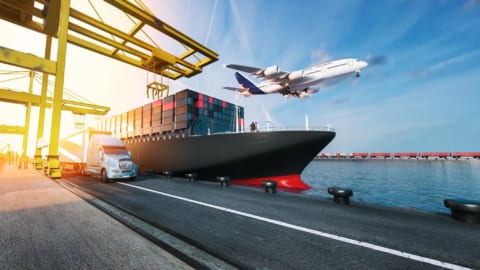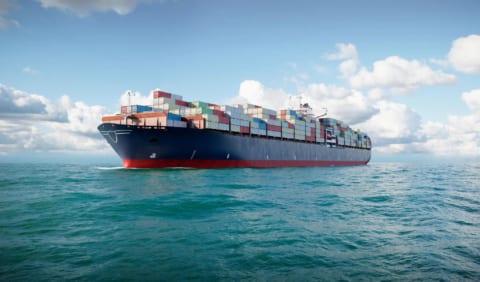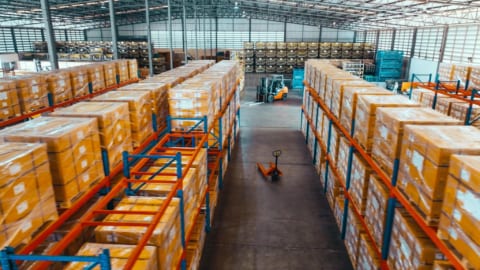Logistics will encounter both old and new issues in 2023. Here, we will provide you with some of the important themes that we believe will shape logistics in 2023.
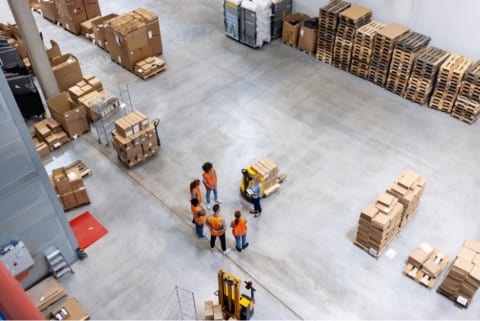
- Sustainability is on the agenda
In the context of alarmingly escalating climate changes, supply chains face a high risk of climate disruption in 2023 whilst also bearing a great duty to address the situation through decarbonization and improving sustainability.
One of the easiest first steps to decarbonization is to shift the transport method for your goods from air shipment to sea or train freight. Shipping goods in large container vessels is studied to emit only 0.7% of the emissions of an air shipment.
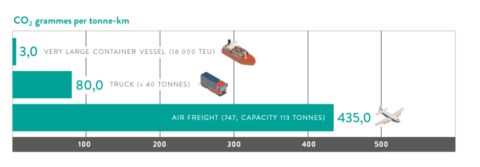
Typical CO2 emissions from various means of transportation in grams of CO2 per tonne of goods per kilometre
Sustainable logistics, or green logistics, is becoming more and more relevant in the transition from a linear economic model to a circular model of industrial economy. It is not just concerned with reducing a company’s environmental imprint, but also with the economic and social responsibility of its logistical activities.
The pressure towards a higher sustainability of logistics activities is also influenced by the awareness of customers and end users. Directly, this awareness is focused on their carbon footprint through purchasing habits, such as packaging, raw materials, production processes, product lifecycle and how they can take steps to reduce it. Indirectly, it is through their support to political and legislative initiatives.

A.P. Moller Maersk’s roadmap for net zero terminals within their sustainability strategy to achieve net zero greenhouse gas emissions by 2040.
As a result, businesses that prioritize decreasing emissions – both in logistics and day-to-day operations – and are upfront with customers about what this implies for them will benefit from increased brand loyalty. They will also contribute to the good shift toward a more sustainable future.
- Digitalization is here to stay as digital logistics take the centre stage
To keep up with the trend of the 4.0 technology era, the logistics sector must undergo a quick and complete digital transformation.
With the goal of revolutionizing the logistics industry, digitalization in logistics entails the incorporation of new digital capabilities in areas like as storage, order preparation, and transportation, among others.
For maritime transport in particular, digitization is working remarkably and effectively in its core services like online booking and online cargo management; tracking and tracing of shipments; routes optimization and autonomous vessels, among others.
According to the Digital Container Shipping Association, if 50 percent of the container shipping industry adopted electronic bills of lading, the collective global savings would be around £3.6 billion a year.
Digitization is not going anywhere. It will only continue to evolve and drive consumer expectations. The global digital logistics market is expected to grow at an average rate of 23% over the next few years, according to Allied Market Research. It started at just USD 2.92 billion in 2020 and will reach $22.9 billion in 2030. This equals over 8% of the total global logistics market, with 2023 being a key year for innovation and growth.
- Overcoming challenges and seizing opportunities in 2023
COVID-19 and other disruptions – like the 2021 Suez Canal obstruction and the Ukraine War – have undeniably impacted supply chain management globally. Unfortunately, 2022 does not appear to be the reprieve many businesses were hoping for despite the world having taken tentative measures toward recovery from the pandemic. And analysts predict these issues will persist beyond this year.
Despite promising success and growth, according to The Sea Intelligence consultancy, as old challenges fade, new ones will take their place. LogiNets also recently reported that several challenges will emerge that the industry will need to tackle in 2023. They are unpredictable freight costs, labour shortage, post congestion, integrations and lack of data and analytics.
However, it is not all doom and gloom on the horizon. From the growing significance and urgency of sustainability to the development of innovative digital logistics solutions like we mention above, opportunities will surely emerge among the hardships for those who understand logistics industry trends and are best prepared for all scenarios by prioritizing resilience and agility.
Reported by SUVI @WEDO 2023-01-11




